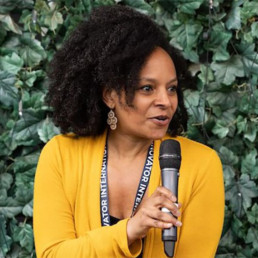
Written by Dana Saxon
Dana Saxon is an educator, writer, and family historian who seeks to address global inequities in education. Her organisation, Ancestors unKnown, changes the way pupils learn about history, themselves, and the world around them, providing opportunities for them to learn about marginalised histories and stories from their own communities.
Traditional history education can sometimes feel stale and uninspired – a series of dates and old white men who seem to have little or no relevance to the lives of today’s children. This approach, heavily focused on Eurocentric perspectives and the accomplishments of a select few, can leave many students feeling excluded and disconnected from the past.
But, as even Ofsted explained in their 2023 report about history education, “Every pupil is entitled to encounters with the richness of the past and the complexity of historical enquiry”.
A New Approach: Student Stories at the Centre
What if we reframed history education? What if we centred the learning experience around the unique stories of each child?
This is the vision driving Ancestors unKnown, a unique approach to history education that empowers young people by weaving their personal narratives into the larger context of local and global history.
At the heart of our methodology lies the belief that every child’s story is a valuable piece of the historical puzzle. We encourage students to explore their own family and community histories through oral histories and archival research. By interviewing elders, collecting family artefacts, and delving into local archives, children uncover the unique stories of their ancestors and the elders in their community, including their struggles, their triumphs, and their contributions to society.
Then, while our students are empowered to personalise historical research, we help them connect these personal narratives with the untold and often marginalised histories that have shaped our world. As a result, students learn about the contributions of diverse communities, stories about migration, struggles for social justice, and other hidden stories that lie beneath the surface of conventional historical narratives.
The Benefits of Ancestors unKnown
Our integrated approach fosters a profound sense of belonging and empowerment. When children see how their own stories connect to the larger historical narrative, they develop a deeper understanding of their place in the world. They begin to see themselves as active participants in history, not just passive observers.
Furthermore, by sharing their family histories with their classmates, children gain valuable insights into the diverse experiences and perspectives of those around them. This fosters empathy, understanding, and a greater appreciation for the people and communities around them.
With our approach, Ancestors unKnown is making history curriculum more inclusive and equitable. By centring the experiences of diverse communities and highlighting the contributions of marginalised groups, we challenge traditional narratives and create a more representative understanding of the past.
“Our community interviews were really successful!” shared a primary school teacher about their Year 5 Ancestors unKnown project.” We interviewed adults from South America, England, France, China and Nigeria! The children asked some really interesting questions and really enjoyed listening to the different family and community stories.”
Bringing Ancestors unKnown to More Classrooms
Ancestors unKnown provides schools with a toolkit and ongoing support to implement our programme during one school term for Y5 or Y6. We also offer teacher training, parent/community engagement workshops, and access to a network of local historians and storytellers as guest lecturers.
We believe that by empowering teachers, students, and their families with the tools and knowledge to uncover their own historical narratives, we can create a more inclusive and engaging learning experience for everyone.
Ready to transform history education in your school? Learn more about our programme and contact us to bring Ancestors unKnown into your classrooms.
Let’s work together to empower the next generation of historians to tell a different, more inclusive story about the past – a story that includes their ancestors.

